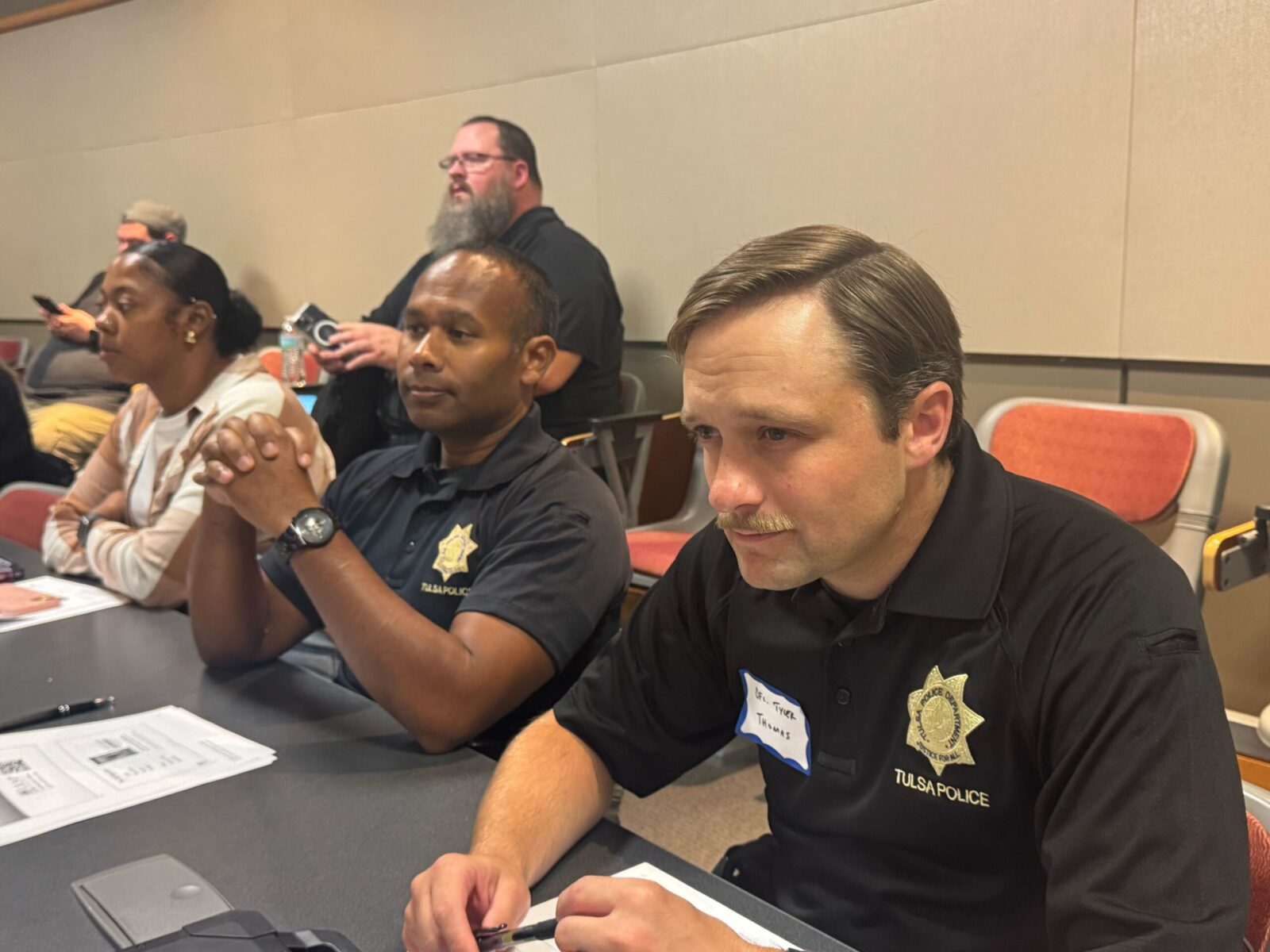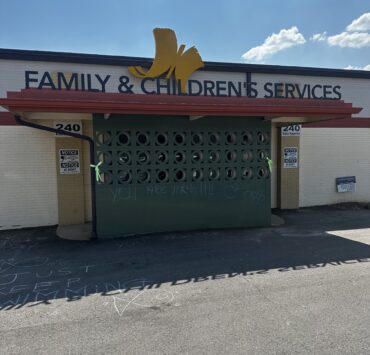
LOCAL
Kimberly Marsh, The Oklahoma Eagle
Community Response Team members Officer Ryan Lincoln, left, and Officer Tyler Thomas of the Tulsa Police Department participate in LEAP training on Monday. Photo: Kimberly Marsh/The Oklahoma Eagle
About 80,000 people in Oklahoma who have a serious mental illness don’t understand they have it, according to Dr. Xavier Amador. The world-renowned clinical psychologist on Monday brought his training on the condition called anosognosia to Tulsa, saying many of the people who have it are homeless as a result.
Amador told first responders and mental health practitioners the neurological disorder makes it more difficult to get people into treatment, shelters or housing. Thus, a more effective communication program is needed to reach them.
“The idea of offering treatment and housing to a person with a serious mental health illness, without first building a relationship with them, is naive and uninformed,” he told The Eagle before the training session.
Amador is the founder of the LEAP Institute, which educates mental health professionals and families on the disorder. It’s a personal mission for him as his brother initially refused help. Then a 21-year-old college student, Amador would go on to create his method of communication: Listen-Empathize-Agree-Partner, or LEAP.
“I help people separate the illness from the person, and try to help them see the human being whose life has been derailed and who is suffering greatly because of their brain disorder,” he said, adding that this knowledge seeds compassion in caregivers who are at risk of burnout.
Amador emphasized that anosognosia is not the same as denial. He compared it to stroke patients who may be paralyzed on one side of their body but insist they can move just fine. Someone with schizophrenia or bipolar disorder might believe they don’t have an illness because their brain isn’t giving them accurate information.
The training was scheduled six months ago but had a new timeliness as Oklahoma Gov. Kevin Stitt’s homeless encampment sweeps provoked controversy. State troopers say they have cleared 64 camps on state property in Tulsa since Sept. 4, but only one person was taken to a treatment facility. Sweeps are expected to conclude Tuesday.
“Individuals with a serious mental illness and anosognosia are certain, absolutely positive, they do not need treatment. Many of them are too scared to accept housing,” Amador said. “So you’ve got to build a relationship with the person where you can help them feel safe. Then you offer housing. Then, you start to intervene to offer treatment.”
Tulsa Day Center CEO Mack Haltom said the downtown homeless shelter has used the LEAP model over the last two years. He’s glad to see efforts to understand the disorder expand.
“You’re seeing the city really stepping up,” Haltom said. “More police officers are being trained. We’re seeing some success getting people off the streets, out of the shelters, into housing.”
Tulsa police officers Tyler Thomas and Ryan Lincoln, both new members of Community Response Teams tasked with stabilizing individuals experiencing mental health crises, said they attended Monday’s session to become more aware in their interactions with people who may have a mental illness.
“This is a real issue and something that we can work to try to improve and solve from a different angle,” Thomas said. “I think that we can see a better response, not just in our mental health unit, but from patrol, and then from the department in general, because we have more understanding of what’s going on.”









